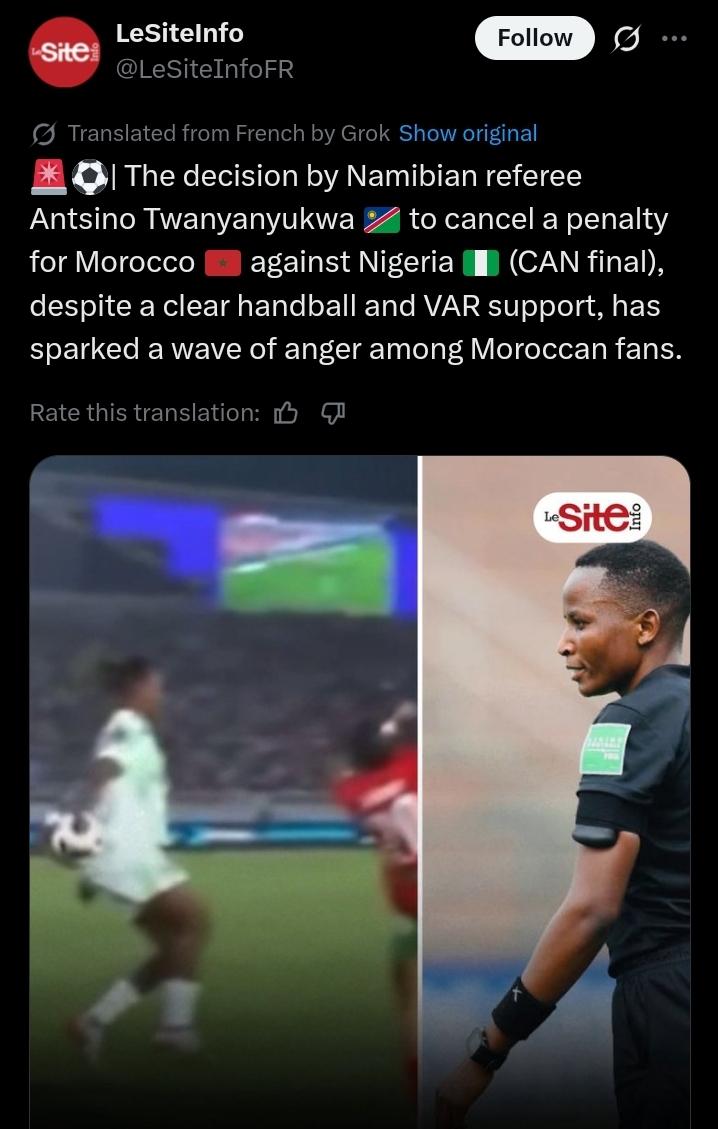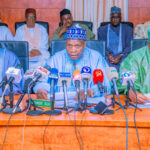The Royal Morocco Football Federation (FRMF) is preparing to submit an official complaint to the Confederation of African Football (CAF) following a thrilling, but now controversial, 3-2 defeat to Nigeria in the 2024 Women’s Africa Cup of Nations (WAFCON) final.
The game, played in Rabat, was marred by disputed officiating decisions that have sparked outrage across Morocco, particularly concerning the use of VAR.
Nigeria’s Super Falcons, chasing their 10th title, came from 2-0 down to seal a remarkable win which left Moroccan fans and officials stunned.
Despite racing into a 2-0 lead before halftime, the Atlas Lionesses saw their dreams of a maiden continental title slip away after a spirited second-half comeback by the Super Falcons.
Nigeria’s 10th WAFCON title was confirmed in dramatic fashion, but the fallout has ignited fury across Morocco, with players, officials, and fans voicing outrage over what they describe as “blatant officiating errors” and a “VAR scandal.”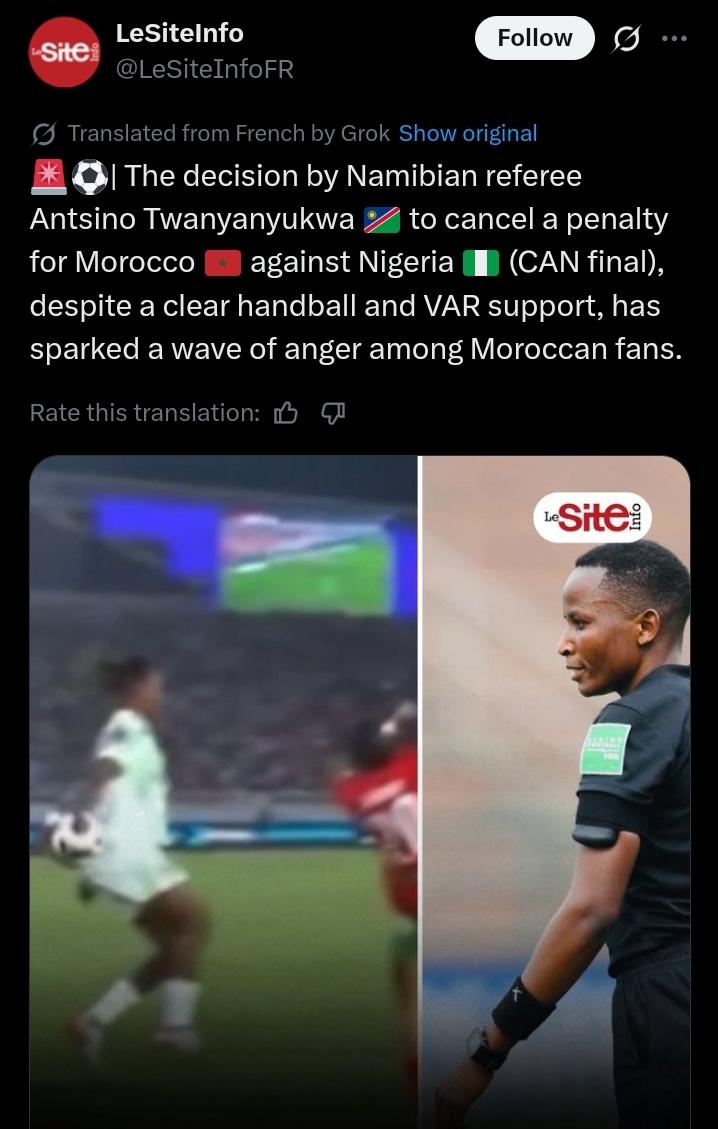
The decisions that sparked a firestorm in Morocco
The first point of controversy came in the 63rd minute, when Nigeria were awarded a penalty for a handball by Nouhaila Benzina.
The referee, Namibian official Antsino Twanyanyukwa, was advised by VAR to check the monitor after Nigeria’s appeals.
After replays revealed the ball struck Benzina’s arm and not her side, Twanyanyukwa changed her initial decision and awarded the Super Falcons a penalty.
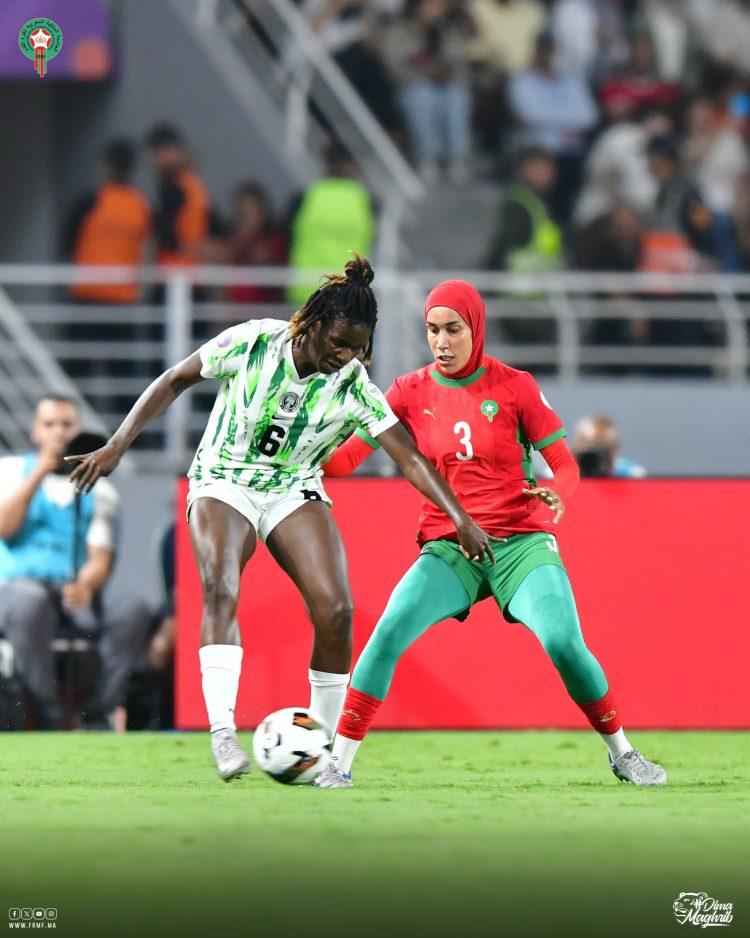
Nigeria’s Esther Okoronkwo converted the spot kick, reducing the deficit to 2-1 and shifting momentum in favour of the Super Falcons.
Minutes later, Nigeria levelled the match at 2-2, triggering an explosive final 15 minutes.
But the biggest controversy of the night came in the 83rd minute when Moroccan striker Imane Saoud’s shot hit Nigerian defender Tosin Demehin’s arm inside the box.

Twanyanyukwa initially awarded Morocco a penalty, only to reverse her decision after a lengthy VAR review. The replays confirmed Demehin’s hand was in a natural position and close to her body, prompting VAR to advise the referee to overturn the call.
However, Moroccan head coach Jorge Vilda was left fuming by the decision to cancel the penalty. Speaking after the match, he didn’t mince his words.
“We can’t understand the decision made by the referee,” Vilda told ESPN.
“She gave a penalty, but then the images we saw were not the same as those presented to the referee. We saw there was a hand, but the referee took it off us. That’s what determined that we weren’t able to celebrate this match – the penalty that was taken away from us.”
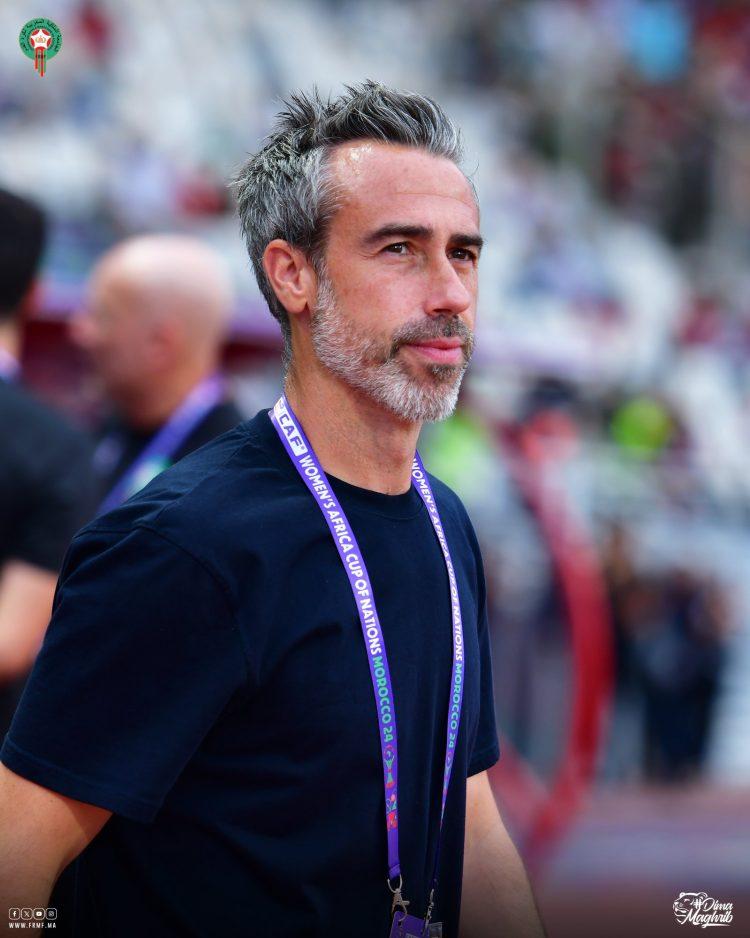
Vilda further added that the decision had a “psychological impact” on his players, suggesting that the reversal deflated the team at a crucial moment.
“It made it hard for us to come back. Football was hard towards our team.”
National uproar and accusations of bias
The fallout was immediate. Moroccan fans have been fuming in anger online and offline. On social media, images and slow-motion replays of the incident have circulated widely.
Several Moroccan players, including talismanic forward Ibtissam Jraïdi, reposted clips of the handball incident on their personal accounts in protest.
Outraged by the sequence of events, FRMF President Fouzi Lekjaa confronted the Namibian referee post-match, according to the Morocco World News.
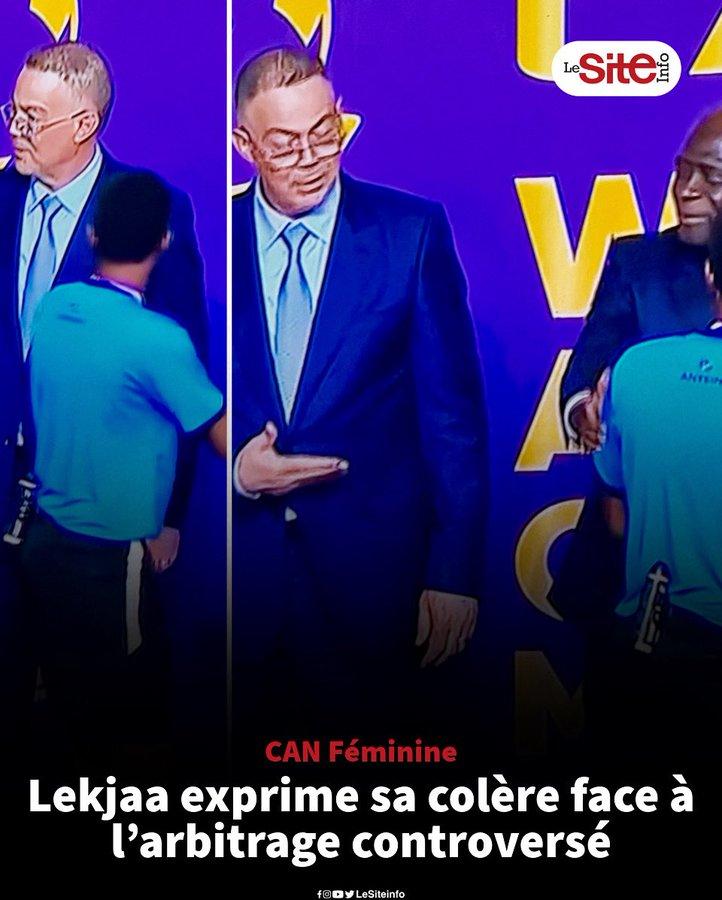 FIFA president Gianni Infantino reportedly had to intervene and urge Lekjaa to maintain composure.
FIFA president Gianni Infantino reportedly had to intervene and urge Lekjaa to maintain composure.
Lekjaa’s anger mirrored widespread frustration online and among Moroccan media figures.
#SCANDAL: Fouzi Lekjaa, president of the Royal Moroccan Football Federation and member of the @FIFA Council, physically assaulting the match referee following the Women’s Africa Cup of Nations final between #Morocco and #Nigeria. #CAF pic.twitter.com/3a18ge4GsG
— ﮼رَاشـــــد | Rashid (@RLehbib) July 28, 2025
Get Our Sports News First – Join Our WhatsApp Channel Now!
Even Hassan Boutabssil, Executive Director at Arryadia TV, has had to deny allegations that Morocco’s TV production team intentionally withheld footage that might have influenced VAR.
“When the referee goes to VAR, the director has no power,” Boutabssil told Radio Mars.
“The image goes directly to the VAR screen and it’s the VAR operator who selects the camera angles. People need to stop speaking nonsense.”
Boutabssil, however, criticised CAF’s handling of the situation.
“There was a deliberate delay, and in the end, they showed an angle that didn’t reveal anything. That reeks of bad faith,” he said.
“We were targeted. This is just like the World Cup semi-final against France. It’s the VAR team that failed this time.”
Boutabssil also defended the Moroccan broadcast team, saying they adhere to standards certified by both CAF and FIFA.
“The final was directed by Khalid Jadid, one of the best in Africa. If any wrongdoing had occurred, CAF would have launched an investigation. But that’s not the case.”
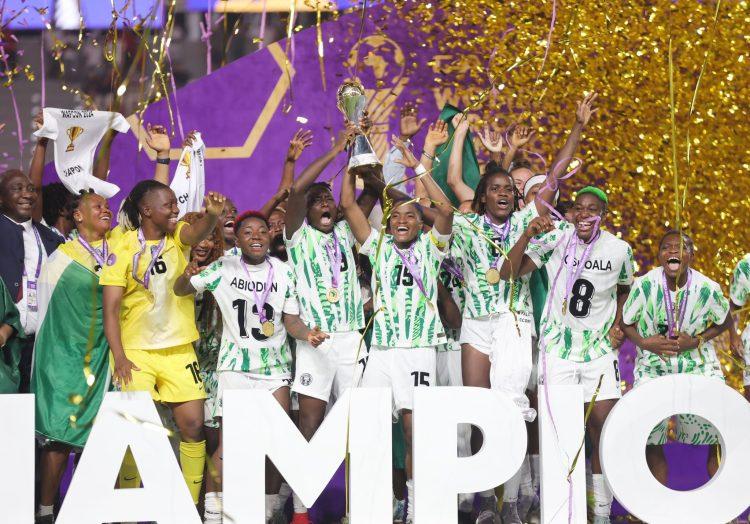
Morocco clutching at straws?
Interestingly, Morocco benefitted from a debatable VAR decision earlier in the tournament: a controversial penalty against Senegal that ensured the Atlas Lionesses’ progress as Group A winners.
Still, the FRMF is adamant that what occurred in the final went beyond human error. They are reportedly calling for a thorough investigation.
CAF is yet to issue an official statement.
As things stand, Nigeria’s 10th WAFCON title will not be affected by any inquiry.
However, with Morocco set to host the 2025 Africa Cup of Nations and the 2026 WAFCON, there could be political and reputational consequences.

